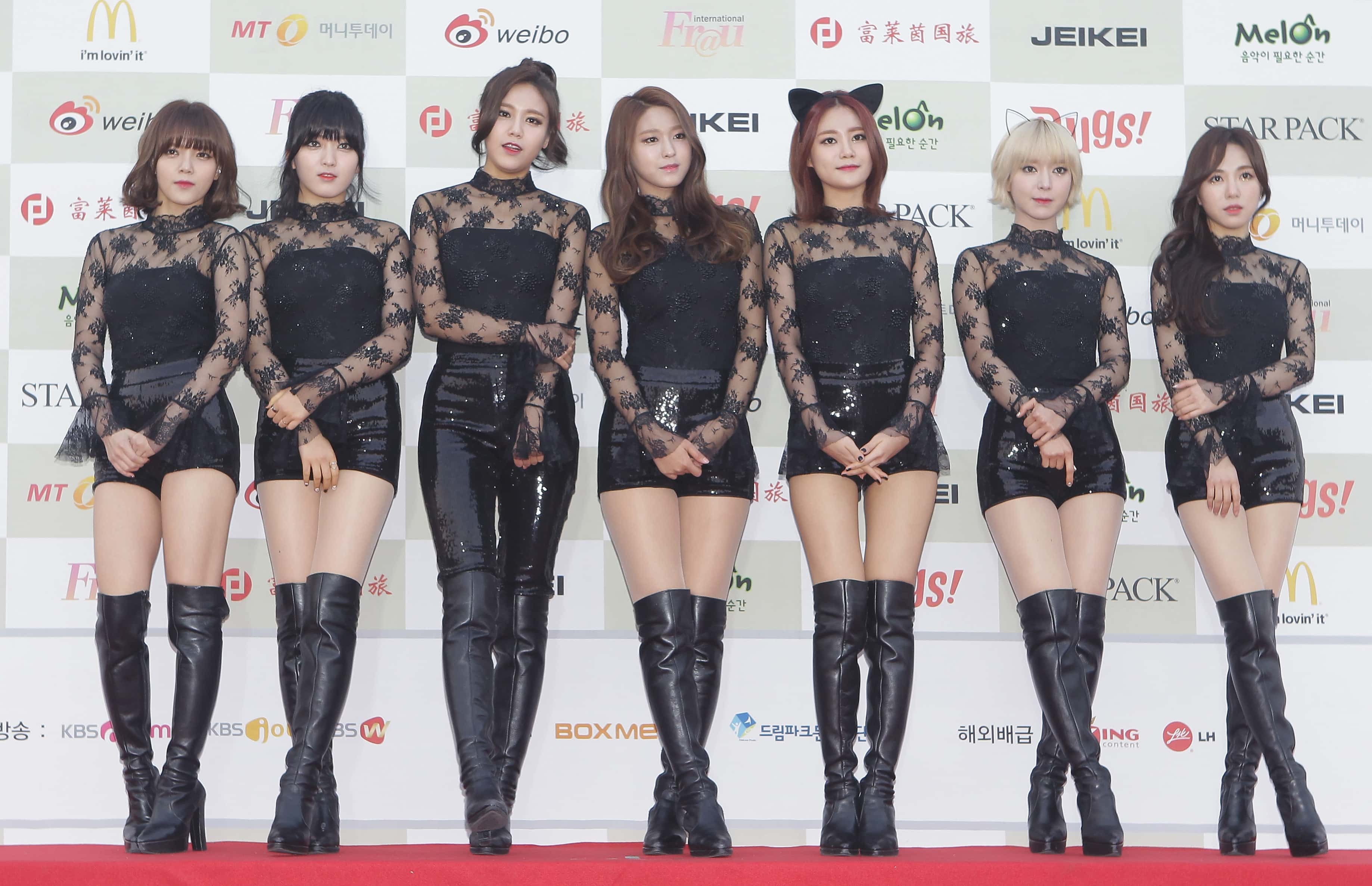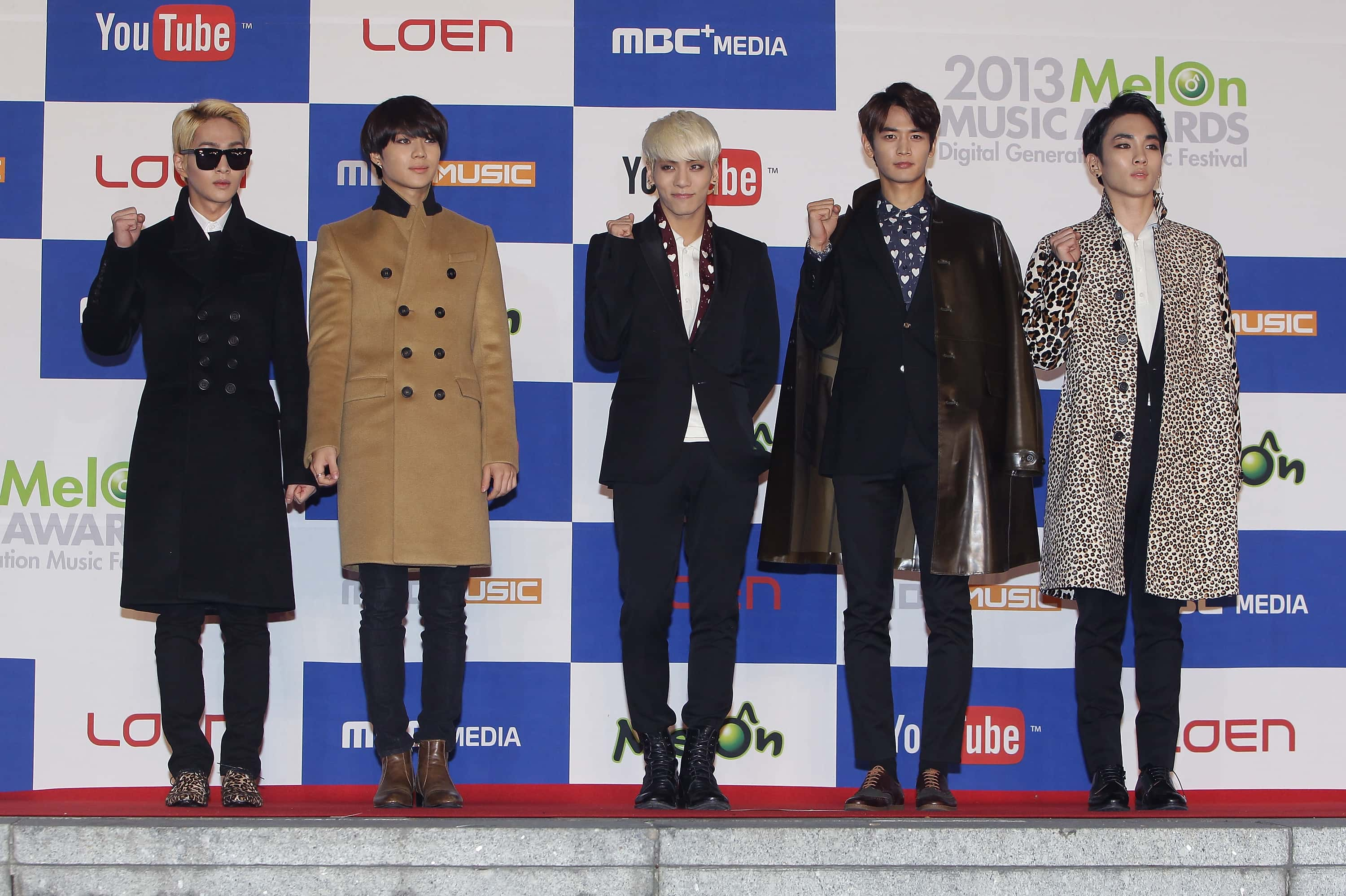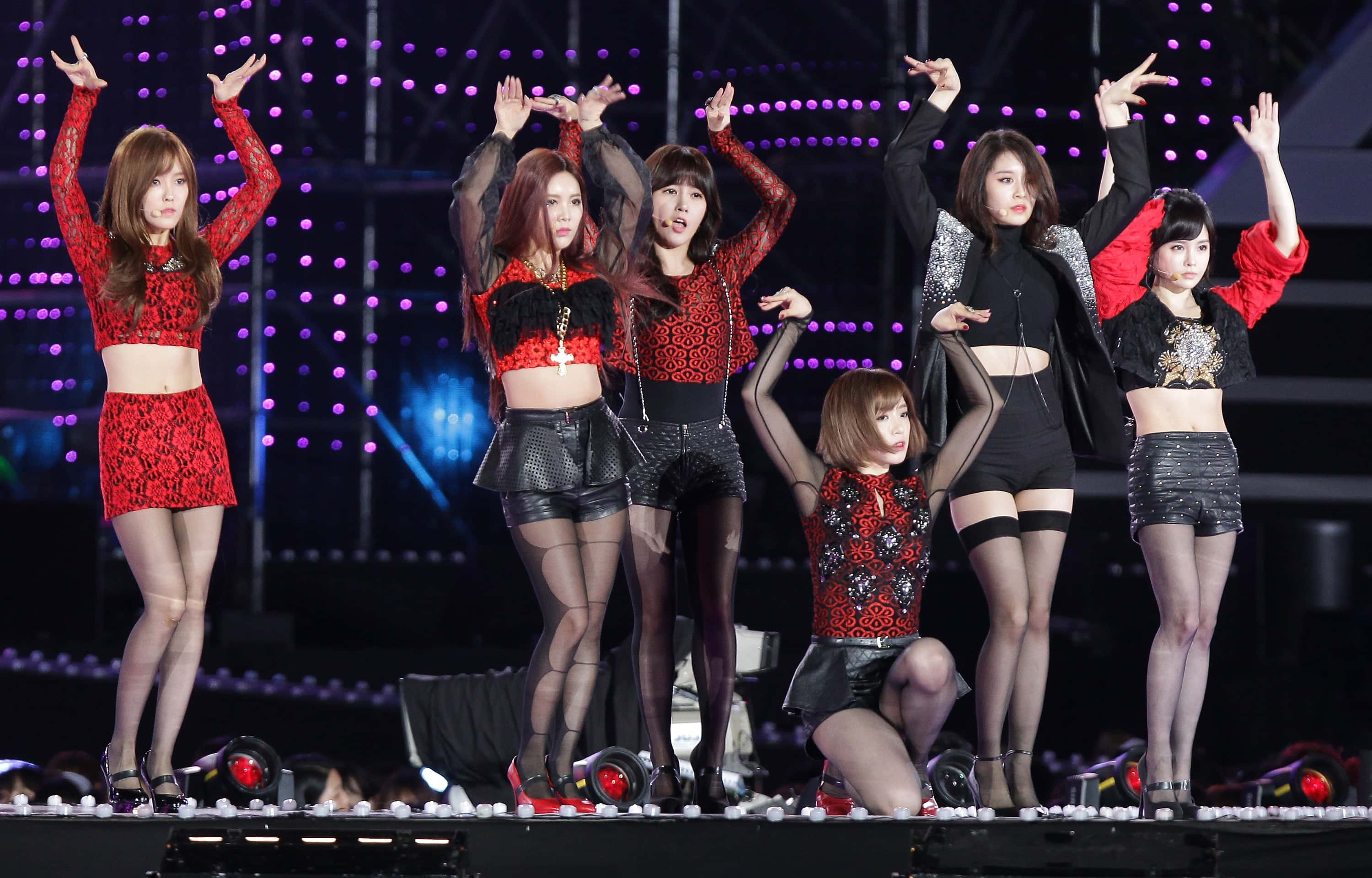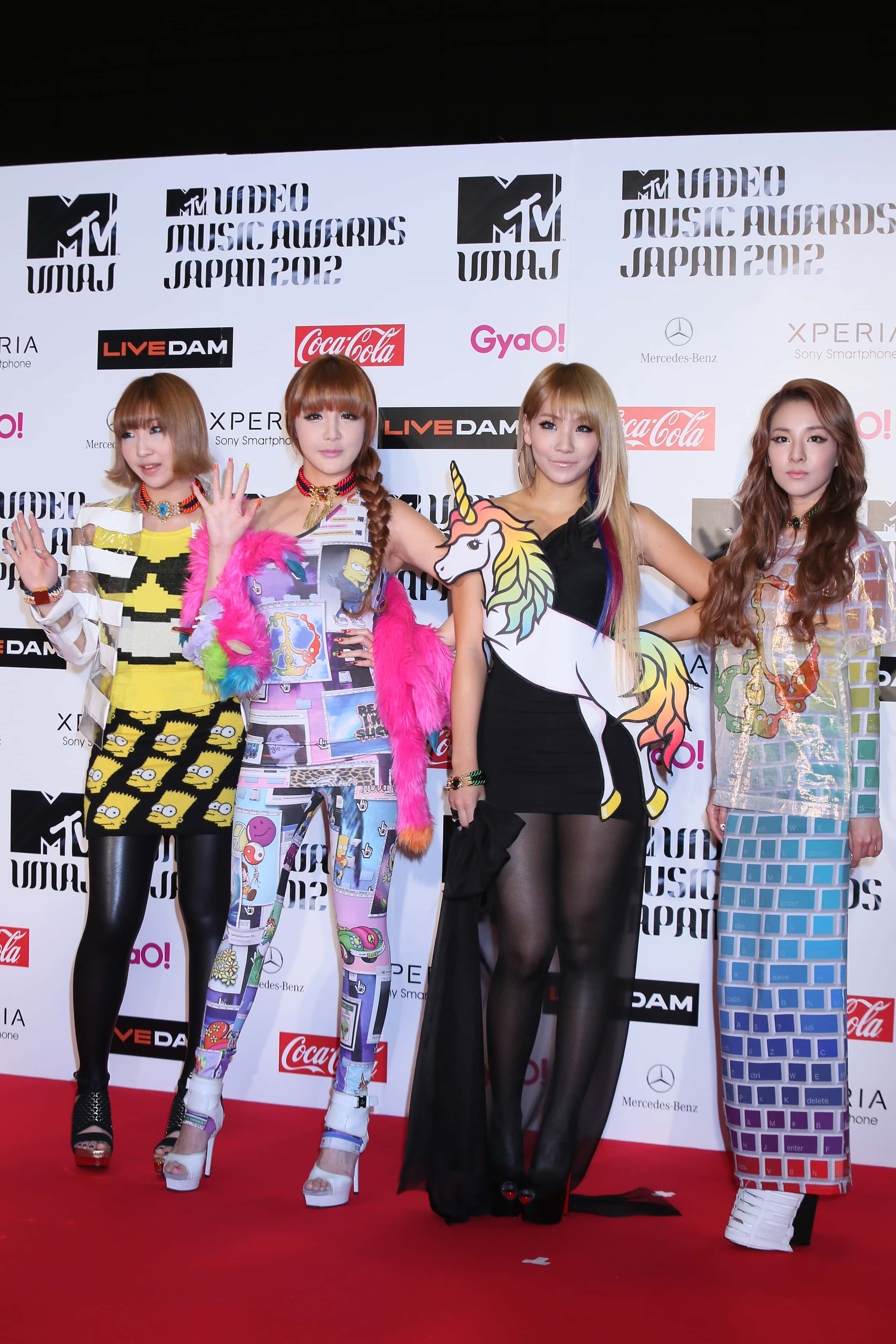K-pop Exposed: How AOA's Mina sparked a conversation on bullying, mental health and self-harm within groups

Former AOA member Mina sparked a massive conversation when she decided to voice out her grievances via social media in July. Her statements pointed to extreme bullying at the hands of her fellow group member and leader, Jimin, over the course of a decade which Mina declared was the cause of her deteriorating mental health. Since the incident came to light, Jimin had been the target of harassment, while Mina has undergone multiple apparent breakdowns and has needed to be hospitalized. But amid the unfolding situation, K-pop has been forced to reckon with the idea that idols deal with extreme situations that affect their mental health - a conversation that began several years ago and has been forced wide open since last year.
Trigger warning: discussion of bullying, abuse, suicide, eating disorders, and self-harm.
The drama began unfolding in July after Mina posted a series of concerning posts, highlighting both the bullying she faced from Jimin as well as her own deteriorating mental health. She also hurled accusations at Jimin and their label FNC for being disingenuous after the two attempted to smooth things over with statements and apologies. She would go on to share that she had attempted to take her own life before, and in August, made a post suggesting she had attempted suicide once more.

Mental health is not a conversation that the K-pop industry has been too comfortable having. But in the last few years, they have begun to make attempts towards broaching the subject. Notably, the reality and variety show formats, which have often focused only on comedy, even when it bordered on bullying itself, has seen greater interest in shows like 'Hello Counselor', a talk show that addresses people's concerns and attempts to solve disputes. Nonetheless, there was a distinct lack of open and honest communication around the mental health of idols who are forced to deal with some of the most extreme working schedules while also facing harsh scrutiny from both media and the general public. And if that weren't enough, they also have to juggle some of the most intense fandoms which can often include dangerous stalkers who sometimes attempt to kidnap or even murder the objects of their twisted affection, as well as workplace harassment and abuse.
But while much has been done to alleviate the stress of malicious comments and harassment, including upping the security around idols and taking legal action against the worst of the lot, there was still more work to be done as far as mental health is concerned. This conversation finally blew open in 2017, when SHINee's Jonghyun took his own life following an extended period of suffering through mental health issues, including depression and the price of being an idol, in silence. And as shocking as his death was to his loved ones and adoring fans, that he was unhappy at all was what really struck those who had followed him as an idol for years. Because all anyone ever saw was a hardworking, successful idol who never stopped smiling. When fellow idols Sulli, a former member of f(x), and Goo Hara of Kara followed in 2019, the former after being widely harassed for her unconventional views and brazen attitude and the latter following an abusive relationship and being the victim of a sex crime that she was criticized for, it became all too clear that this was a conversation the K-pop industry and fan communities will have to have, whether they like it or not.

And as people finally began to address the issue of mental health, albeit gently and slowly, Mina's revelations kicked it into overdrive. Because in addition to pointing at the industry itself, and not just external factors, Mina also posted graphic photos of self-harm, which made it hard for anyone to pretend like the situation wasn't real or was no more than attention-seeking behavior. Idols are suffering, and while the world has already lost several, some, like Mina, are just at their breaking point.
Bullying within K-pop is not unheard of. Oddly enough, some forms of it tend to be encouraged for comedy, particularly on variety shows. Admittedly, if it is a scripted show and the idols are all friends, this would be seemingly harmless. But when in cases like AOA the idols are not, in fact, on good terms, what you get is the perfect recipe for abuse. The case of AOA caused a lot of K-pop fans to recall a similar occurrence with T-ara, a group that debuted in 2009 and reigned supreme as one of the most popular and successful girl groups within the industry. The band met a sudden and shocking end in 2012 after the members were seemingly exposed for bullying member Hwayoung. She left the group soon after, and other members followed over time. The primary "bullies" were fired from the shows they were appearing on, and several members lost deals and endorsements. The group's comebacks were delayed past their contracts, and eventually, despite attempts to revive it, T-ara went on an indefinite hiatus. The case against them was strong. However, most people ignored the multiple statements from the group's staff and entourage who insisted Hwayoung was and had always been the instigator and the alleged bully, and not the victim. But the damage was done, and one of the most successful groups faded into obscurity.

Mina and T-ara's situations are hardly rare occurrences. Former Fiestar member, Cheska, revealed earlier this year that members Yezi and Jei had bullied her as well as the other members repeatedly during her time in the group. ILUV's Shin Minah also accused her former members of bullying earlier this year, and much like Mina revealed some harrowing details about her experiences, including a suicide attempt. She additionally highlighted the longterm effects of the bullying on her mental and physical health, including depression, panic disorder, insomnia and an apparent eating disorder. Just like Mina, other victims of bullying are still attempting to find justice and healing, all while attempting to jumpstart their careers once more.
The bullying within the South Korean music industry isn't always a career-ender, however. Hong Jin-young, one of South Korea's most beloved trot singers, once shared during her appearance in the 2017 show 'Sister's Slam Dunk Season 2' that her early career was marked with abuse, including being physically beaten up by a former manager. And once again, while the revelation was shocking, it somehow was not new. From Woollim Entertainment's CEO Lee Jung Yeop slapping Infinite's Nam Woohyun on an Instagram live earlier this year, to YG Entertainment's former CEO Yang Hyun-suk repeatedly calling 2ne1 members ugly on camera a decade ago, abuse is rarely done under the guise of secrecy. Quite contrarily, it is done wide out in the open for all to see.

Perhaps that is why Mina's revelations and the deaths of idols at such a young age has sparked such an intense conversation on mental health and the toll being an idol can take on it: they were so sudden that no one managed to spot any signs, despite the industry often doing very little to hide them. Or maybe they were so shocking because they forced the industry as well as fandoms to recognize the humanity of the idols in question, something that often gets lost amidst a sea of capitalistic endeavors that sells them as products rather than portraying them as living beings. Regardless of why they rocked the industry, though, these incidents have forced people to sit up and take notice. And maybe that will make all the difference to the next young idol who finds themselves alone, hurt, confused and on the brink of making a choice they cannot come back from.
If you are dealing with thoughts of self-harm or suicide, call the National Suicide Prevention Lifeline at 1-800-273-8255 (TALK).
K-Pop Exposed is a column that gets under the hood of what's happening behind-the-scenes in the world of South Korean pop.










